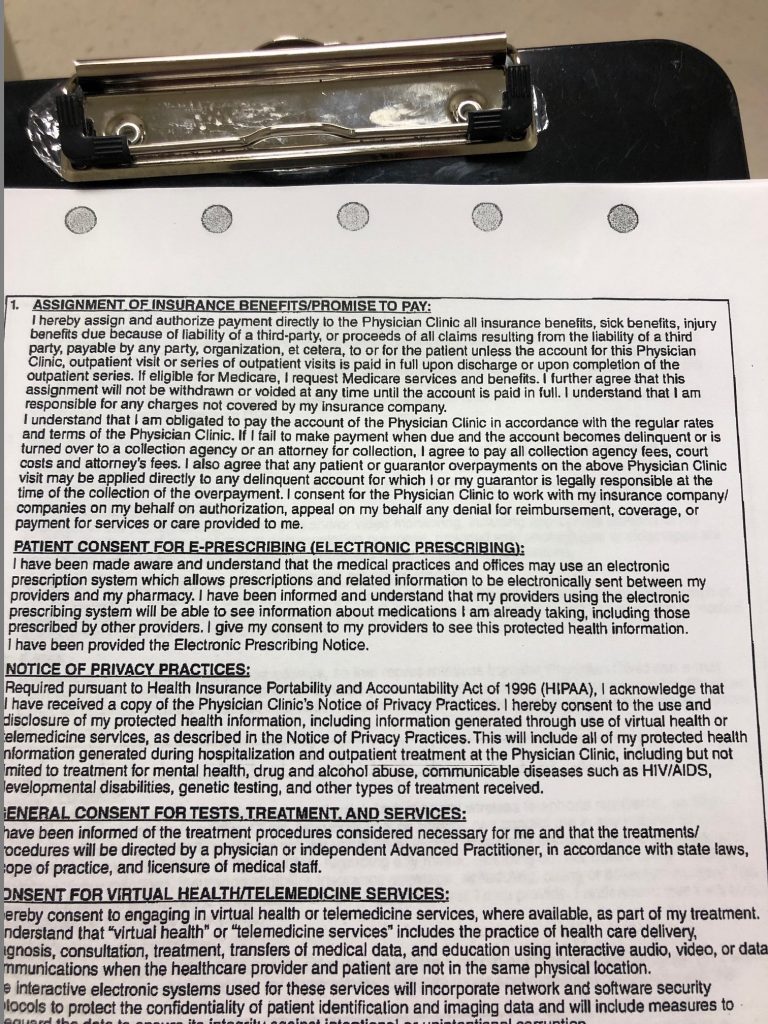
An adhesion contract (also called a “standard form contract” or a “boilerplate contract“) is a contract that heavily restricts one party while leaving the other free (as some standard form printed contracts); implies inequality in bargaining power
By Molly Mulebriar
As a new patient checking in at a locally owned hospital clinic in Victoria, Texas recently I was asked to fill out a whole lot of paperwork while waiting to see the doctor. There were 7 or 8 pages to complete and sign including the one shown above.
Unlike most patients in need of care at any cost, I actually read the document. After doing so I thought why in the world would anyone agree to pay a price without knowing what the damn price is in the first place as well as agree to pay all kinds of sanctions including attorney fees if a pricing dispute arises?
So I made some changes to the document. I didn’t have much room to write between the lines so I did my best to do so and be legible at the same time. I added words like “not”, “don’t”, etc. where I thought appropriate. Then I accepted the Agreement by signing it.
“I wonder what the little intake clerk will say when I hand her back all this paperwork with the changes I made?” I thought.
She took the clipboard, pulled out the documents and scanned them into the clinic’s electronic record system. Presto, my contract with the clinic, along with the changes I made, was thus memorialized and in effect! The clerk accepted the Agreement without reading it.
Not only do most patients fail to read their provider agreements, intake clerks fail to do so too.
An Assignment of Benefits is a contract wherein the provider who accepts assignment agrees to accept a plan’s benefit payment as payment in full:
‘”When a patient offers their right to obtain benefits from their insurance, that assignment of benefits is in and of itself consideration in full, exchanged for services and treatment. An assignment of benefits is thus not a form of access to consideration, and rather, is the consideration itself. One might ask why a medical service provider would ever choose to accept an assignment of benefits in lieu of the right to bill a patient for 100%.” – Adam Russo, Esq, The Phia Group
So they hedge their bet by adding this other verbiage (rhymes with garbage) within the documents patients are asked to sign.
The message to the patient is clear:
“We (contractually) accept your Assignment of Benefits as payment in full, but if we don’t like the payment amount, you will owe us whatever we say you owe us or we will (1) ruin your credit, (2) file a lien on your property, (3) charge you for all our legal fees and (4) take your first born child hostage.
In this instance, an appropriate response would be “Please take the child! And show me the contract where I agreed to your demand!”

